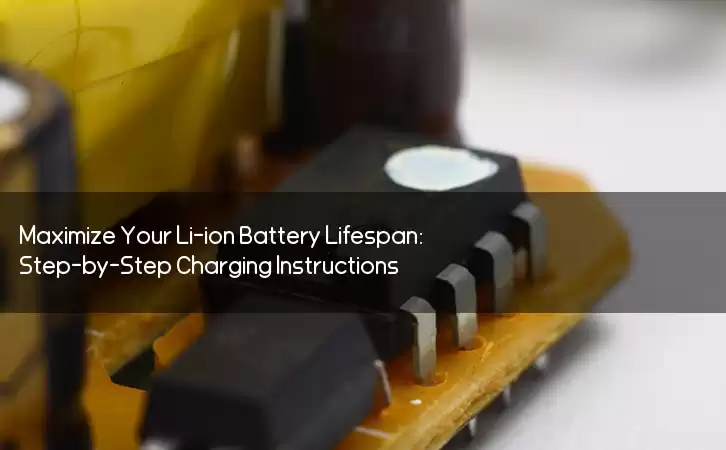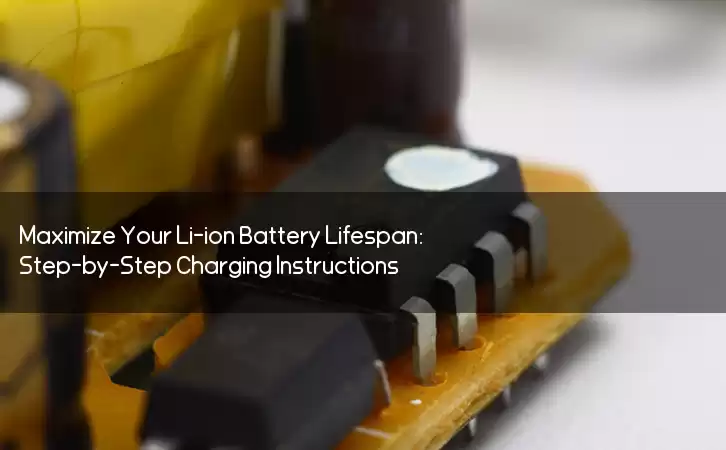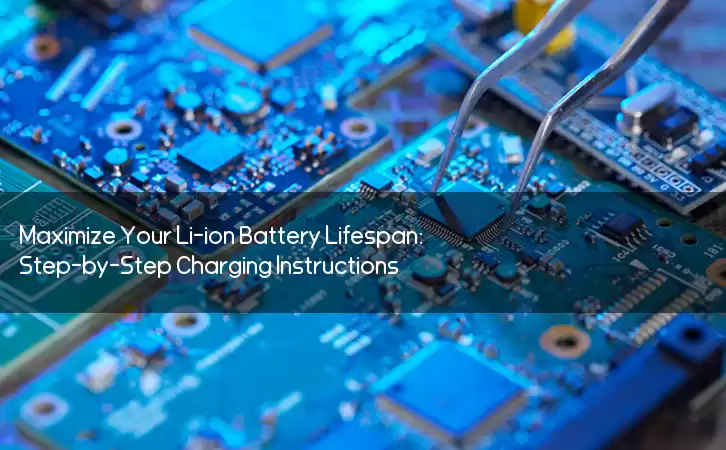Information Center
Maximize Your Li-ion Battery Lifespan: Step-by-Step Charging Instructions
Published:2023-07-16 20:31:17 Author:Green WCND Views:91Li-ion Battery Charger Instructions

Li-ion batteries are rechargeable batteries that are commonly used in electronic devices such as laptops, smartphones, and tablets. These batteries are popular because they offer a high energy density and have a longer lifespan than other types of rechargeable batteries. However, in order to keep your Li-ion batteries performing at their best, it is important to properly charge them. Here are some instructions to follow for charging your Li-ion batteries.

1. Use the Correct Charger

It is important to use the correct charger for your Li-ion batteries. Using a charger that is not compatible with your batteries can damage them and decrease their lifespan. Make sure you read the label on your batteries to determine the correct voltage and current required for charging. You can then choose a charger that matches these specifications.
2. Charge at the Correct Voltage
Li-ion batteries are sensitive to voltage, and charging them at the incorrect voltage can cause damage. Make sure to use a charger that provides the correct voltage for your batteries. Most Li-ion batteries have a nominal voltage of 3.7V, so a charger that provides this voltage is usually suitable.
3. Charge at the Correct Current
In addition to voltage, Li-ion batteries are also sensitive to current. Charging at too high of a current can cause overheating and damage to the batteries. Most Li-ion batteries should be charged at a current that is less than or equal to 1C, where C is the capacity of the battery in ampere-hours. So, for example, if you have a 2000mAh battery, the maximum charging current should be 2A.
4. Do Not Overcharge
Overcharging Li-ion batteries can cause them to overheat and damage the cells. It is important to stop charging once the batteries have reached their full capacity. Most Li-ion chargers have built-in protection circuits that prevent overcharging, but it is still important to monitor the charging process and unplug the charger when the batteries have reached their full capacity.
5. Charge at Room Temperature
Li-ion batteries should be charged at room temperature, around 20-25°C. Charging at temperatures that are too high or too low can damage the batteries and decrease their lifespan. If the batteries are too hot or too cold, wait until they have reached room temperature before charging.
In conclusion, Li-ion batteries are widely used in electronic devices and are popular because of their high energy density and long lifespan. To properly charge Li-ion batteries, it is important to use the correct charger, charge at the correct voltage and current, avoid overcharging, and charge at room temperature. By following these instructions, you can keep your Li-ion batteries performing at their best and ensure that they last for a long time.
Power Adapter Design and Customization Guide for Portable Electric KettlesI. Common Design Types for Portable Electric Kettle Power AdaptersPortable electric ke···
I. Common Design Types of Power Adapters External Independent Type (Most Common) Design: A standalone adapter (e.g., "black brick") connected to the p···
Handheld Vacuum Cleaner Power Adapter Selection GuideIntroductionHandheld vacuum cleaners have become a mainstream tool for household cleaning due to their port···
Drill Power Adapter Selection Guide.drill-container { font-family: Arial, sans-serif; line-height: 1.6; max-width: 800px; margin: 0 auto; padding: 20px; } .dril···





